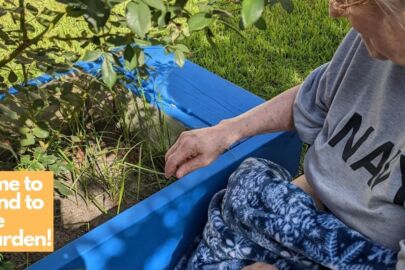As your parents age and require specialized care, they may transition to a skilled nursing facility for their health and well-being. However, being physically apart can be challenging, and maintaining regular communication becomes crucial. In this guide, we’ll explore the best ways to keep in touch with your parents in a skilled nursing facility.
The Importance of Staying Connected
Regular communication with your parents in a skilled nursing facility is vital for their emotional and mental well-being. Studies show that staying connected can reduce feelings of loneliness, anxiety, and depression, and improve cognitive function and morale. It can also aid in the recovery process and positively impact the quality of care your parents receive at the facility.
Traditional Methods of Communication
In-person visits, phone calls, and sending mail are traditional methods of staying in contact with your parents in a skilled nursing facility. In-person visits provide the opportunity for face-to-face interactions, offering emotional support and reassurance. Scheduling regular visits and planning activities can make the most out of these visits. Phone calls allow for real-time conversations, and setting up a routine for regular calls can help maintain consistent communication. Sending thoughtful letters, cards, and packages can bring joy and comfort to your parents.
Embracing Technology for Communication
Modern technologies can facilitate communication with your parents in a skilled nursing facility. Video calls, email, and social media are effective ways to stay connected. Video calls provide the advantage of visual interactions, enabling you to see and hear your parents in real-time. Setting up and using video call platforms, ensuring accessibility, and troubleshooting technical issues can help you make the most out of this technology. Email allows for convenient and timely communication, and social media can facilitate easy sharing of photos and updates.
Enhancing Communication with Assistive Devices
Assistive devices can aid in communication with parents who may have physical or cognitive limitations. Devices such as hearing aids, amplifiers, speech-generating devices, and tablets with communication apps can help bridge communication gaps and facilitate meaningful conversations. Understanding the specific needs of your parents and exploring suitable assistive devices can enhance communication and maintain connections.
Making Communication Meaningful
Regardless of the method you choose, making communication meaningful is key to staying connected with your parents in a skilled nursing facility. Here are some tips:
- Be present: Give your undivided attention during interactions, listen actively, and respond with empathy.
- Be patient: Understand that your parents may have limitations, and communication may require extra time and effort.
- Be creative: Explore different ways to connect, such as sharing favorite memories, engaging in activities together, or reading a book aloud.
- Be supportive: Offer emotional support, encouragement, and reassurance to your parents, caregivers, and facility staff.
Maintaining regular communication with your parents in a skilled nursing facility is crucial for their emotional well-being and overall quality of care. Whether through traditional methods of in-person visits, phone calls, and mail, or by embracing modern technologies such as video calls, email, and social media, staying connected is possible with effort and creativity. Additionally, utilizing assistive devices can further enhance communication, especially for parents with physical or cognitive limitations.
Remember to be present, patient, and supportive during interactions, and be creative in finding meaningful ways to connect with your parents. By actively engaging in communication, you can help alleviate feelings of loneliness, anxiety, and depression, and promote a positive environment for your parents in the skilled nursing facility. Don’t hesitate to seek guidance or assistance from facility staff or caregivers to ensure smooth communication.
By following the tips and techniques outlined in this guide, you can maintain a strong and meaningful connection with your parents in a skilled nursing facility. Remember to prioritize regular communication, be understanding of any limitations your parents may have, and strive to make every interaction meaningful. Your efforts will go a long way in ensuring your parents feel loved, supported, and connected, even while they are in a skilled nursing facility.



